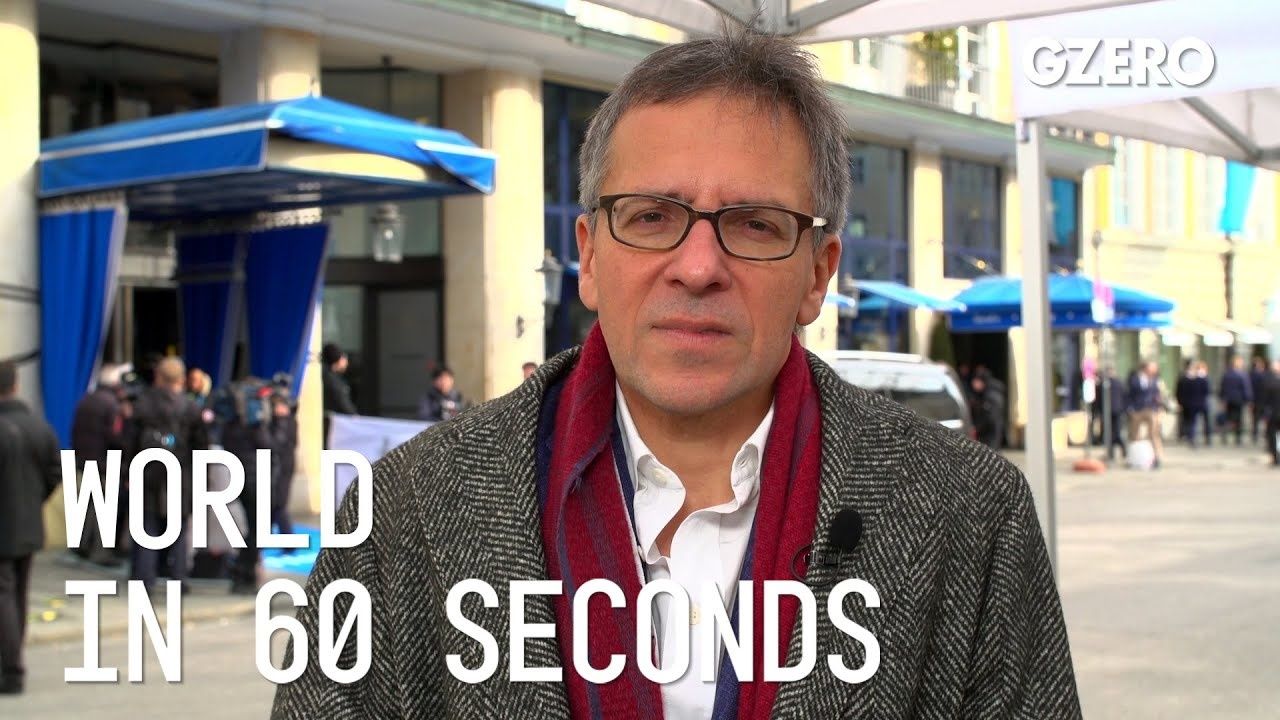February 16, 2020
Ian Bremmer analyzes the discourse from the Munich Security Conference 2020:
It's interesting, a lot of existential angst at this year's conference because you've got all the NATO allies and they're not sure exactly what they want in the region or the world. NATO hasn't really changed all that much since the Soviet collapse, but it also hasn't had to in the sense that the real concern has been Russia and it's been the military balance in the region. If you're sitting in Europe and particularly Eastern Europe, that's been what you've been primarily exercised with. And so even though Trump has said, "ah, it's obsolete" - no, it's not anymore. They're spending more money and there's a lot of forward deployment.
But this year, the focus isn't Russia. The focus is China. It's Huawei. It's technology. Things that NATO isn't really good at. And the Americans, all of them, not just the Trump administration, Secretary of Defense, Secretary of State, but also Speaker Nancy Pelosi on the Democratic side, they're all coming here and saying China's the principal threat. And the Europeans, none of them are saying that. And they're deeply concerned that they're gonna be forced in the middle and squeezed by the Americans and hit hard on sanctions if they decide not to align with the United States.
The UK and the Germans have already said they want to work with Huawei. And Boris Johnson, who's trying to get a new trade deal done with the Americans, just canceled a trip to the White House because of a conversation gone horribly badly with Trump, specifically on China relations with the UK. He's not here today. Neither are any of his ministers. Wasn't at Davos, either. Lot of inward focus. Where is the special relationship if you don't have the United Kingdom?
Where's NATO? Macron is probably the most important leader here, but he's focusing on how Europe needs to have a stronger, more sovereign defense. But he is not leading anyone in particular. Merkel's going to be gone and her preferred successor, AKK, is not going to be there. The rest of the Europeans have different second and third order challenges and priorities. So, as a consequence, it feels like the institutions are increasingly not fit for purpose. That's good for the Russians and good for the Chinese because they have stronger leaders, now for life. And even though they're weaker as countries, they know what they want, and they are able to project their power more internationally.
That's why the theme of this year's Munich Security Conference is "Westlessness." And of course, I feel a bit "westless," but it's also because we don't know exactly what the West wants, who the West is. And while you have the Chinese and the Russians being more assertive in different ways, you have the West with many parts of their populations, not even believing that their own institutions are legitimized. Never mind what they should be doing around the world. So anyway, that's me. That's your Munich In a little more than 60 Seconds. I'll be back again with your World, and shorter, next week.
More For You
Most Popular
- YouTube
Will AI change the balance of power in the world? At the 2026 World Economic Forum in Davos, Ian Bremmer addresses how artificial intelligence could redefine global politics, human behavior, and societal stability.
Ian Bremmer sits down with Finland’s President Alexander Stubb and the IMF’s Kristalina Georgieva on the sidelines of the World Economic Forum to discuss President Trump’s Greenland threats, the state of the global economy, and the future of the transatlantic relationship.
- YouTube
GZERO World heads to the World Economic Forum in Davos, where Ian Bremmer lookst at how President Trump’s second term is rattling Europe, reshaping both transatlantic relations and the global economy, with Finland’s President Alexander Stubb and the IMF’s Kristalina Georgieva.
© 2025 GZERO Media. All Rights Reserved | A Eurasia Group media company.
